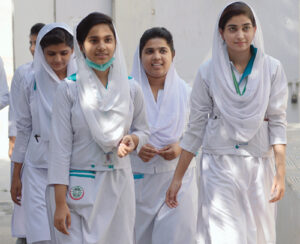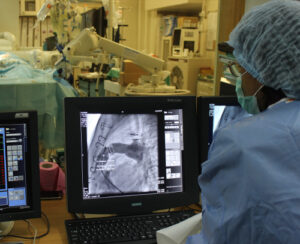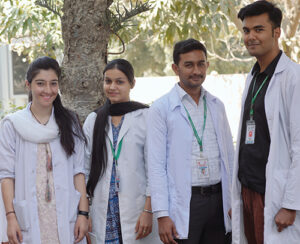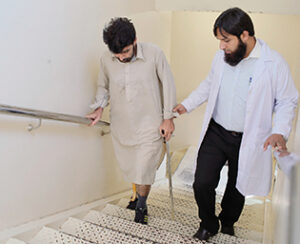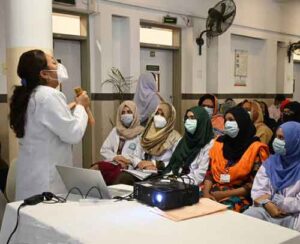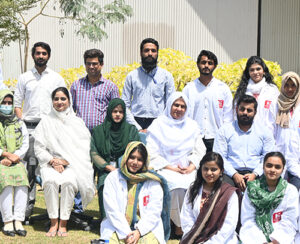Indus University of
Health Sciences
Indus University of Health Sciences aims to prepare a legacy of remarkable healthcare professionals and leaders who are ready to tackle health challenges facing the local & global health landscape with compassion, empathy, and dignity..
IUHS encompasses seven colleges.
The Indus University of Health Sciences (IUHS) received its charter through an act of the provincial assembly of Sindh in 2015. It’s objective is to provide students with evidence-based and transformative education at the undergraduate, graduate, and postgraduate levels.
Indus College of Nursing & Midwifery
The Indus College of Nursing & Midwifery is the first academic unit of Indus University of Health Sciences, recognized by Pakistan Nursing Council.
The College prepares nurses to deliver the highest quality care that is guided by research, intellect, and passion and offers various programs from diploma to undergraduate level.
Visit College website for more information and admission details.
Indus College of Medical Technology & Allied Health
The Indus College of Medical Technology & Allied Health started in 2016 in Karachi. Affiliated with the Jinnah Sindh Medical University, the College aims to train qualified medical laboratory technologists and allied health professionals to provide safe, skilled, and efficient services to patients.
The Indus College of Medical Technology & Allied Health started in 2016 in Karachi. Affiliated with the Jinnah Sindh Medical University, the College aims to train qualified medical laboratory technologists and allied health professionals to provide safe, skilled, and efficient services to patients.
Visit the College website for more information and admission details.
Indus College of Dentistry
The Indus College of Dentistry aims to produce empowered dental professionals through a state-of-the-art curriculum and technology taught by leaders of the field.
In addition, the college aims to inculcate in students the ability to think critically and apply their knowledge and skills in the community’s best interest regarding individualized oral health planning, intervention, and outcome evaluation.
Indus College of Physical Therapy & Rehabilitation
The Indus College of Physical Therapy & Rehabilitation, established in 2021, offers a five-year Doctor of Physical Therapy program. The program prepares competent, qualified, and well-trained physical and rehabilitation therapists to address a majority of health issues by bringing in standardization and safety in the field.
Visit the College website for more information and admission details.
Indus College of Family Medicine and Public Health (ICFMPH)
Indus College of Family Medicine and Public Health aims to develop leadership in community healthcare through teaching and training family physicians, general practitioners, public health practitioners, and healthcare researchers, bridging the gap and bringing together various stakeholders to strengthen and enhance the quality of primary health care.
Visit the College website for more information and admission details
Indus Medical College
The College of Medicine will be a college of international standard and stature.
The curriculum will stress rational decision-making and clinical problem solving based on an understanding of the basic biological, physical, and behavioral sciences; thus, the integration of basic and clinical sciences will be emphasized throughout the program, built on a model of continuous curricular innovation and improvement
Indus College of Pharmacy
The Indus College of Pharmacy will offer a five-year PharmD program to provide top-quality clinical training at a leading medical facility, acclaimed faculty, and cutting-edge research and facilities.
The college will also provide continuous innovations in pharmaceutical sciences by adopting various research projects in pharmacogenomics, pharmacokinetics, protein-based drug designing, and new drug formulations.

